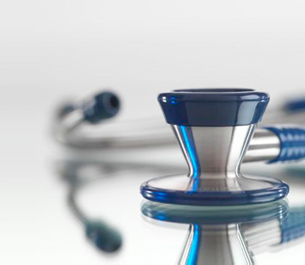ASCO Reading Room | ‘A Great Example of How Technology Can Be Leveraged for Patient Benefit’
The amount of complex information patients with cancer must process continues to grow. Studies, however, have shown that patients recall less than half the information discussed during a visit with an oncologist. But the simple step of making an audio recording on a mobile phone and listening to it afterward can help patients remember and make more informed decisions, said authors of a study in JCO Oncology Practice.
In this exclusive MedPage Today interview, Eric A. Klein, MD, chair of the Glickman Urological and Kidney Institute and professor of surgery in the Lerner College of Medicine of the Cleveland Clinic, offers his takeaways from the study.
The following is a transcript of his remarks:
Welcome to another episode of the ASCO Reading Room . In this segment I'll be discussing a study from UCSF that highlights the utility of audio recordings to promote informed decision-making in men with prostate cancer.
It's well documented that patients with a diagnosis of cancer often fail to fully take in and understand what their physicians or other providers say to them during their medical visits. Even if they hear everything that is said, fear and anxiety always diminish their ability to process important details. This challenge can be overcome by having a spouse or other caregiver attend each visit, and by providing a written summary of findings and recommendations.
In this pilot study, the authors took a novel approach to further address this issue by suggesting to patients being seen for management of progressive metastatic castrate-resistant prostate cancer, that they use a mobile recording device called Medcorder to record either their in-person or virtual office visits. The men were also offered the option of having the recorded visit transcribed by a medical scribe for later review.
The goals of the study were to examine the feasibility and acceptability of the approach, along with patient-reported helpfulness in decision making, and measure change in decisional conflict using a validated instrument.
The results were very positive: 90% of the patients recorded the session, 72% said they had listened to the recording at some interval after the visit, half said that they found the recording helpful in their decision making, and at 1 week there was a significant increase in patient reports of feeling informed as measured by the decisional conflict scale informed subscale instrument.
The authors concluded that patients readily adopted this technology and made more informed decisions about their care.
This seems to me to be a great use of technology that's now ubiquitous, and that we should encourage our patients to record visits for later reference. It's a great example of how technology can be leveraged for patient benefit.
Read the study here.
Read an interview about it here.








Gloss